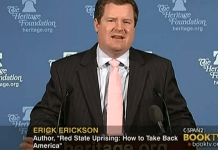France’s political landscape was thrust into a whirlwind following the stunning electoral success of the National Rally (RN), as rivals scrambled to regroup for the final vote. In the initial round of parliamentary elections, the anti-immigration party clinched a significant one-third of the votes, setting its sights on achieving an outright majority.
RN’s leader, Jordan Bardella, positioned himself as a contender for France’s next Prime Minister, rallying voters to choose between what he deemed a left-wing coalition posing “an existential threat to the French nation” and his party of patriots poised for decisive action. Prime Minister Gabriel Attal, facing imminent job uncertainty, underscored the urgency to prevent the far-right from securing an absolute majority.
Meanwhile, President Emmanuel Macron, who triggered the election, pledged to weather the political storm despite his centrist movement trailing behind. Macron’s party, La République En Marche (LREM), found itself overshadowed by the leftist New Popular Front and RN, led by Marine Le Pen and Bardella. With 577 seats in the National Assembly at stake, RN needs 289 to wield an absolute majority and implement its agenda focusing on immigration reform, law enforcement, and tax cuts. Among its proposed policies are limiting social welfare to French citizens, ending birthright citizenship (droit du sol) for children of immigrants, and restricting dual citizens from sensitive national positions.
Following the first round, RN and its allies secured 38 confirmed seats, earning outright victories in more than half of the local constituencies. The New Popular Front secured 32 seats, while LREM lagged far behind with just two, signaling a significant setback for the ruling party. The remaining 501 seats remain up for grabs, with the major political blocs facing crucial decisions in the next 24 hours.
Candidates aligned with LREM and the Popular Front who advanced to the second round now face a critical deadline. Until 18:00 on Tuesday, they must decide whether to withdraw to consolidate support behind a rival candidate and block RN’s advance. Both coalitions have appealed passionately to voters against supporting the far-right, highlighting the high stakes and intense polarization of this brief yet pivotal campaign.
Tensions between the Popular Front and LREM spilled into public view on Monday, underscoring the profound implications of this electoral showdown. Marine Tondelier, a prominent figure in the Greens and a key player in the Popular Front, expressed visible frustration during a radio interview. She rebuked a statement by a Macron minister advising against supporting the primary leftist party, France Unbowed, branding it extremist alongside Bardella’s RN.
Reflecting on her decade-long residence in a town governed by Marine Le Pen’s RN, Tondelier accused Macron’s camp of misinterpreting the electoral dynamics and opting for dishonorable tactics. “Can RN secure an absolute majority in the National Assembly? Yes. Does France Unbowed have a chance? No,” she lamented, highlighting the stark realities of the electoral calculus.
This election is particularly noteworthy for its high number of three-way runoffs in over 300 local races, a reflection of heightened political engagement. Sunday’s voter turnout of 66.7% was the highest since 1997, broadening the field of candidates advancing to the decisive second round. By Monday afternoon, numerous third-place candidates, including those from LREM and individual parties within the Popular Front, withdrew from the race to consolidate opposition votes against RN, according to Le Monde.
Sébastien Chenu, a prominent figure in RN, expressed confidence that even without reaching the required 289 seats, the party would garner substantial support in the new National Assembly. As France braces for the final electoral showdown, the outcome will not only shape the legislative landscape but also define the trajectory of national policy on critical issues amid a deeply polarized electorate.























